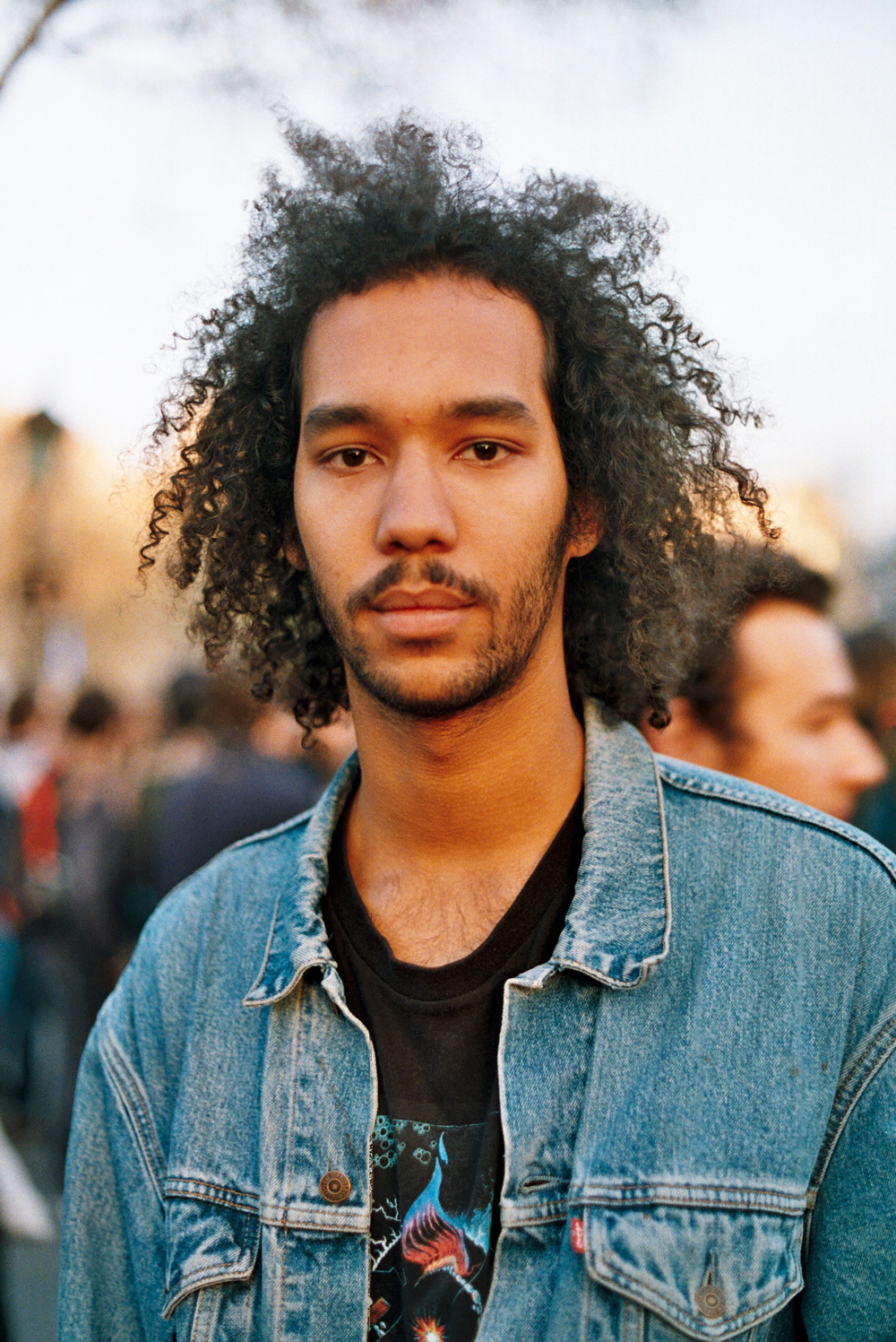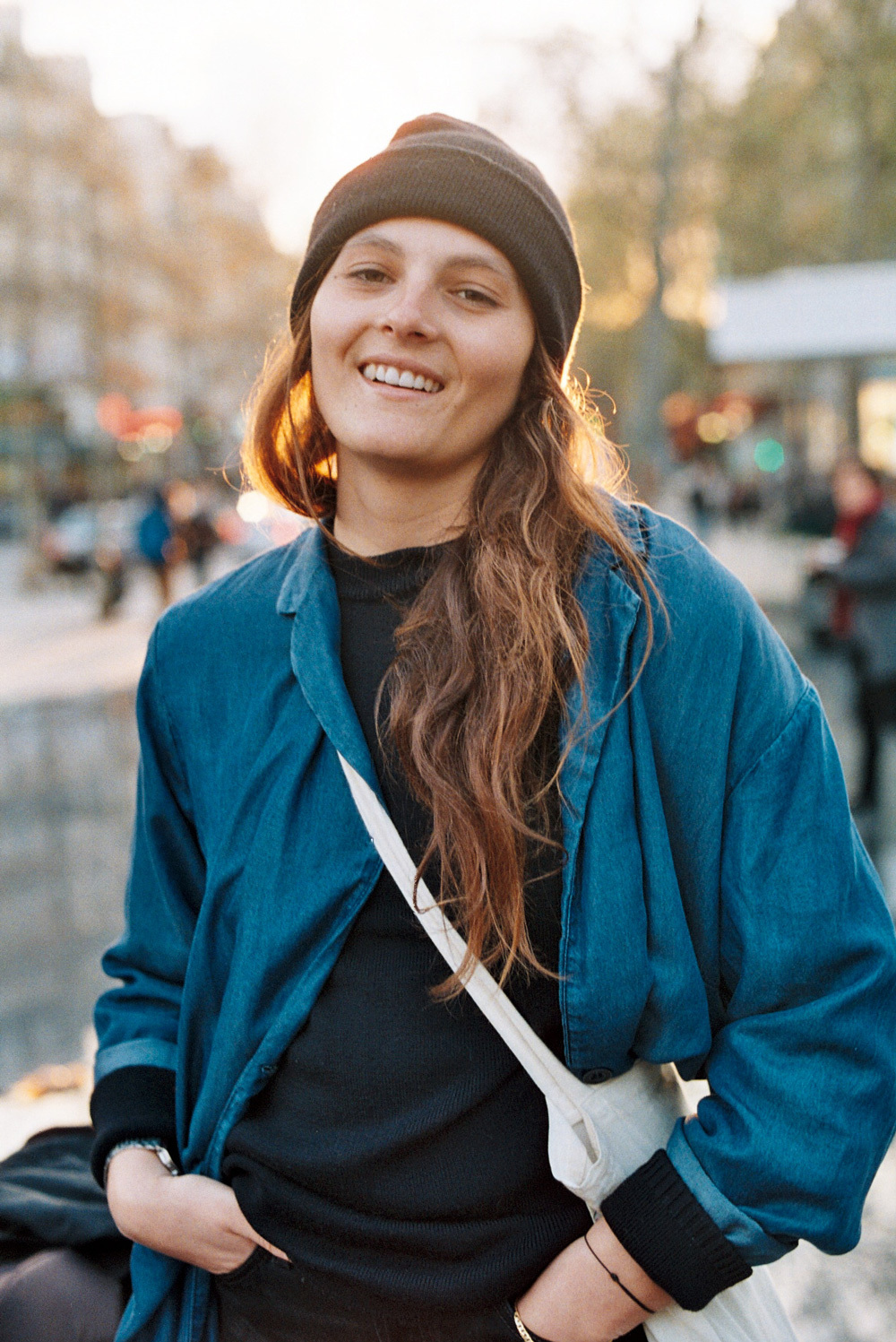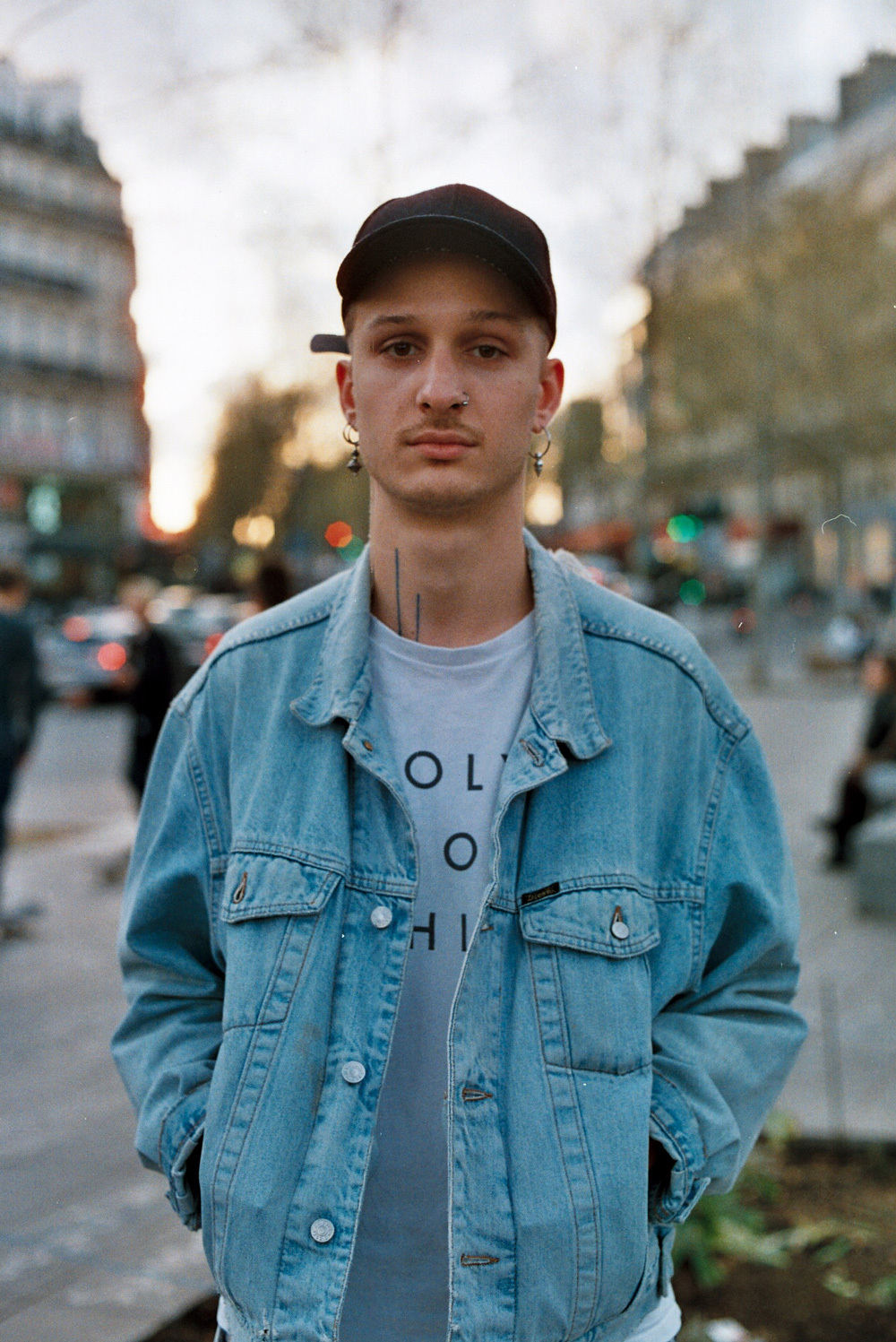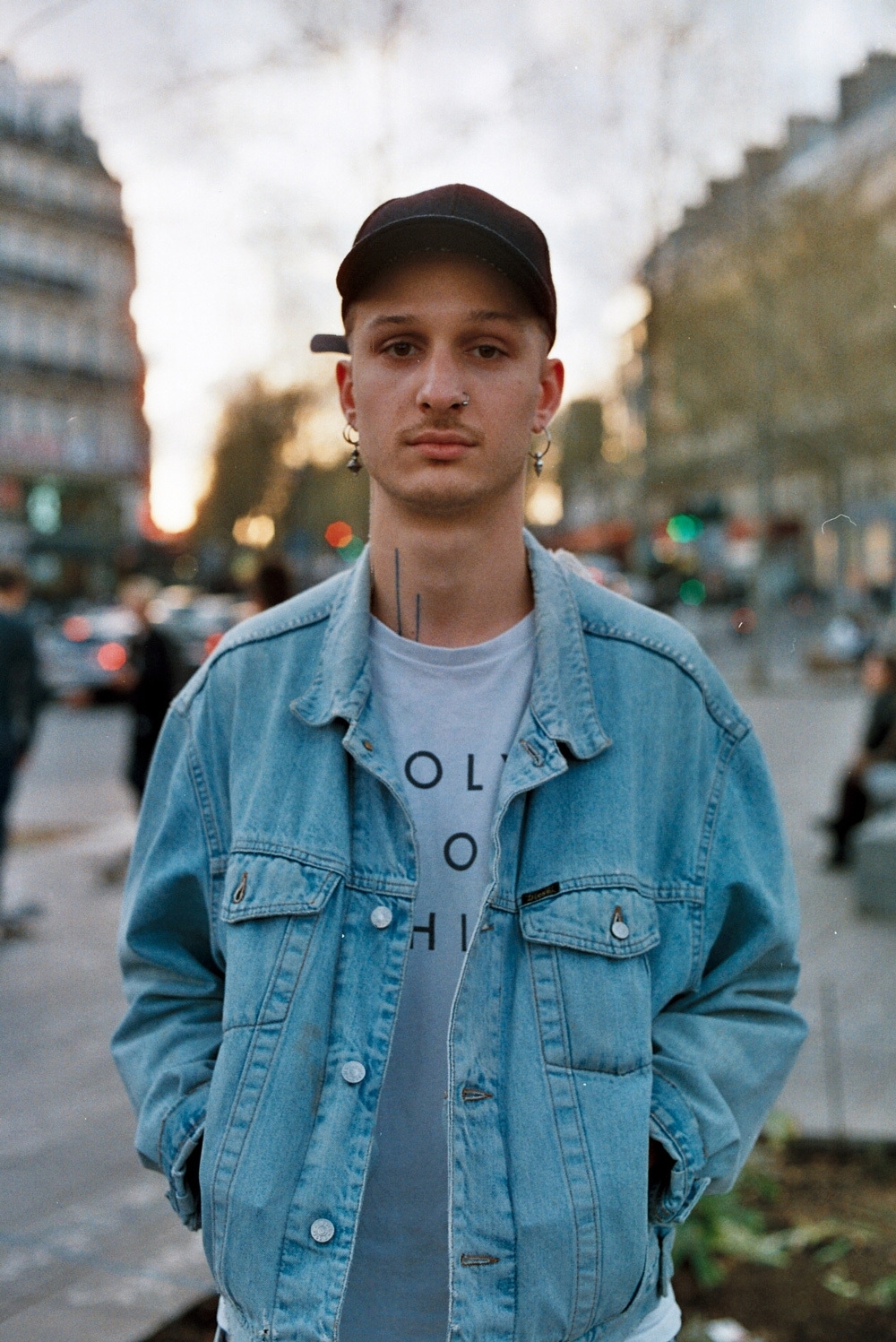“What are you doing here tonight?” “I don’t know“. Actually, we don’t either. But we ask this question because we would like to understand and after all, that’s why we’re here. So that we can understand the French youth that have been listening to one another, debating and drinking side-by-side every night since March 31 in Place de la Republique. A youth who’ve transformed a protest over labour laws into a single unifying word: together. They gave it a name and a hashtag, #nuitdebout, in order to celebrate it. They gave it a birthday and took the opportunity to get rid of the official calendar: March 31st, became March 32nd, then 33rd then 49th.

All this might just be about the unforeseen, the search for the unexpected and for something elusive that has been lost. The despair of a limp and listless country whose desire for a revolution remains undermined by a sedated way of life. So the country is in no way represented by Nuit Debout and we are still far away from the revolution. But Nuit Debout and all those who occupy the square at Place de la République do represent something. Those who are doers, those who outline the sketch of a dream, those who aim outside of the well-trodden path. Those who aim for the unexpected. Those who meet up because they want to argue, who want to argue because it’s a necessity. Those who think about 2016 and the future with the tragedies of 2015 in mind, tragedies which were commemorated on the same square.
Without a doubt, we’ve used too many qualifiers, definitions, stereotypes, profiles and quantifications. As if classifying and putting into boxes was tantamount to knowing. As if saying and explaining were the same things. Defining Nuit Debout makes no sense. We don’t care. Just a few hours spent on the Place de la République are enough to realise that Nuit Debout is a movement that doesn’t know itself. And it’s better that way. This way, this square becomes a realm of possibilities, the sole beginning of an ecosystem whose macroscopic state holds no prejudice on what’s next or how to go about it. It’s an answer to a simple question which can take the shape of an epic blast of air or the beginning of a bad joke: what happens when citizen massively and freely interact?

If Nuit Debout is nothing, Nuit Debout can be everything. Last Friday, you would have to have seen it to believe it, the Place de la République divided into halves. On one side, concerts massively advertised on social media… Agoria, Flavien Berger, Jacques… And on the other, these stalls, these micro-debates, this human swarm of people sitting down and constituting the General Assembly, voting by a show of hands and pivoting, in a manner akin to that of the Miss France contestants on as many topics as there are souls present. Once again, one could have sneeringly branded the people taking part. Well, the hipsters are here for the music, as usual the skaters are only here to ride their skateboards. This guy is here to show off his dexterity with flaming poi balls and this other group of people is here to make demands about everything and nothing. Actually, no. Without wallowing in the lack of understanding and the swanky evocation of a woolly Schrödinger equation, on this particular night, everything was part of the same thing and the same breath.
After their sets, musicians came to feed on potato salad in the canteen next to the legal stall, itself next to Radio Debout, TV Debout and an independent bookshop. The General Assembly was given rhythm to by Flavien Berger’s musical eruptions and beers were clinked against each other above the smoke of ignited voting cards. Then, everything becomes one, the chaos becomes logical, the diversity of intentions forms a giant laboratory for direct democracy where the youth has taken its place. A youth which might not know the verses of the El Khomri Law and who on this Friday might only be here to listen to those of Flavien Berger. But a youth who feel something is happening here. A youth that listens to itself even if its not being heard by politicians. “I feel my place is here” says Paul, in his early twenties. “That there’s something going on worthy of getting out of bed and raising our glasses to now.” He came on his own but enjoys the crowd. You can tell that by the fact that he’s made new friends two minutes ago: “I would never have spoken to these people under normal circumstances but here it seems so simple to open up to others.”

It’s true that boundaries seem to have been broken down. On the stage’s left hand side, boys and girls are building a wooden shack, made with nothing (that is to say, anything they have at their disposal). “I put up two boards and some nails. It’s probably the first time in my life I’ve done that”, confesses Camille, a smiling high school student. On the other side of the stage, debates are still going. TV and Radio Debout, whose stalls were installed on the square a few nights earlier, record the pulse of every word exchanged. “Our goal is to broadcast live, to show how General Assemblies happen, to do reports on actions undertaken during the day”, underlines Elise who launched this project which brings together 6 volunteers. Each day, they invite a guest to speak for him or herself: activists, artists, refugees, collectives, as long as they have something to say, nothing else matters. “We don’t claim to belong to any political party or movement” she reminds us. Neither does Lucille. This political science student, a member of the Debout Education Populaire commission organises debates everyday, from 1pm to 8pm on the square: “Open to all, all the time”.
When is the last time you were handed a microphone and given the opportunity to express yourself freely about anything in front of an audience of people from all walks of life? Moreover, when is the last time you passionately debated with a total stranger (pseudo-philosophical discussions at 4am with 2 grams of alcohol in your bloodstream do not count), outside of both your social circle and your comfort zone? Fittingly, we could criticise the movement for being just a movement. Limited only to talking, communicating, having a dialogue, debating. Yet, having a dialog, in our country, right now in the current context, is already a step in itself that should not be put down. Thinking and having conversations with several people is already taking action collectively.

No one really knows where they will go tomorrow. But each one has told themselves that for lack of a clear destination, it’s at least better to go there as a group. Carried by Jacques, Salut c’est cool, La Tendre Émeute, Berger and all the others, young people have found their voice: that of a generation in need of tolerance and sincerity. What has provoked this sudden love surge? Without a doubt a global realisation born with the help of the unemployment rate, poverty, intolerance, racism and ultra-liberalism. Friday night, young people remembered that unity makes strength. It takes feeling thousands of raised hands, bottles being passed around, (French) kisses being exchanged and the power of a crappy sound system hastily put together with bass that can’t even stand up in order to understand that everything has a price. Especially the freedom of being together.
It’s true, nothing says that the Nuit Debout will carry on tomorrow. Nothing says that all of those who drank, danced, spoke or slept there had in them the profound desire to change the world. One thing is certain: the youth is fighting in its own way the current political system. A system which irremediably translates itself as notions of power and hierarchy to which the youth has turned its back since more than two weeks ago. One can criticise its lack of organisation and concrete action. One is entitled to tell the youth it is anarchic and moonstruck. But the freedom and independence it dreams about are on par with those found in any revolution and social upheaval. Ultimately, it doesn’t really matter that this youth is talking a lot of hot air. It breathes and expresses itself. It creates words that go well together. Actually, on Friday night we added a couple to our vocabulary: solitary but united. They might not change the world of tomorrow but they carry in them a message of tolerance. Undoubtedly stronger than any punch.
Credits
Text Malou Briand Rautenberg and Antoine Mbemba
Photography Thomas Smith
